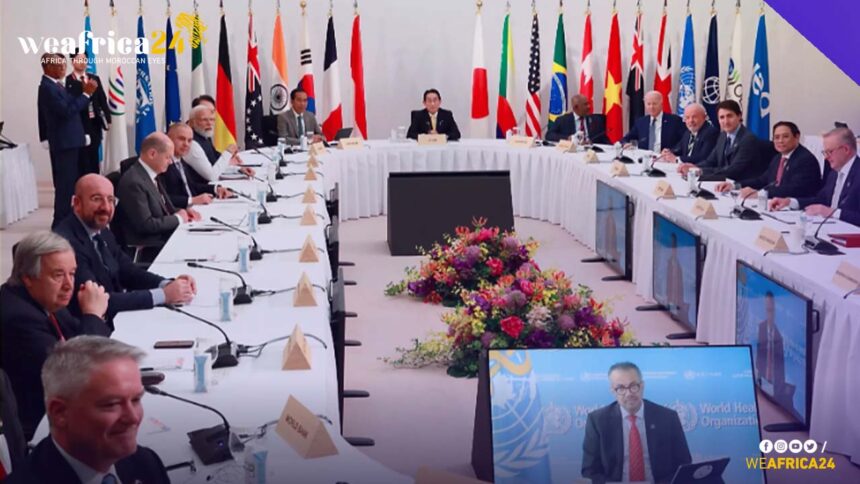G7 leaders have underscored the urgent need for a thorough evaluation of the implications of generative artificial intelligence (AI). They announced their intention to initiate discussions in 2023 on the responsible utilization of this technology, recognizing the increasing prominence of generative AI across countries and sectors. The G7 summit held in Hiroshima, Japan, culminated in the release of a final communique outlining the establishment of a working group to address a range of issues related to generative AI, including copyright, disinformation, transparency, and intellectual property rights.
The emergence of text generation tools like ChatGPT, AI-generated images, and AI-composed music has garnered both admiration and concern, with legal disputes arising as creators accuse these technologies of unauthorized use of their material. With governments under mounting pressure to respond swiftly and effectively to mitigate risks, the CEO of OpenAI, the company behind ChatGPT, emphasized the necessity of regulating AI during a recent hearing before US lawmakers.
To tackle the opportunities and challenges associated with generative AI, the G7 statement declared the establishment of the Hiroshima AI process through a working group within an inclusive framework. Discussions slated for the end of this year will cover various topics, encompassing governance, protection of intellectual property rights, transparency promotion, addressing foreign information manipulation and disinformation, and responsible utilization of generative AI technologies.
The newly formed working group will collaborate with the Organisation for Economic Co-operation and Development (OECD) and the Global Partnership on Artificial Intelligence (GPAI). This collaboration reflects the global recognition of the importance of concerted efforts to navigate the complex landscape of generative AI.
These developments follow OpenAI CEO Sam Altman’s testimony before a US Senate panel, where he emphasized the potential of generative AI to tackle significant challenges such as climate change and cancer. However, Altman stressed the critical role of government regulation in mitigating the risks associated with increasingly powerful AI models.
In parallel, the European Parliament has taken initial steps towards EU-wide regulation of generative AI systems, including ChatGPT. The proposed legislation will undergo a full parliament vote next month before negotiations with EU member states to finalize the law.







